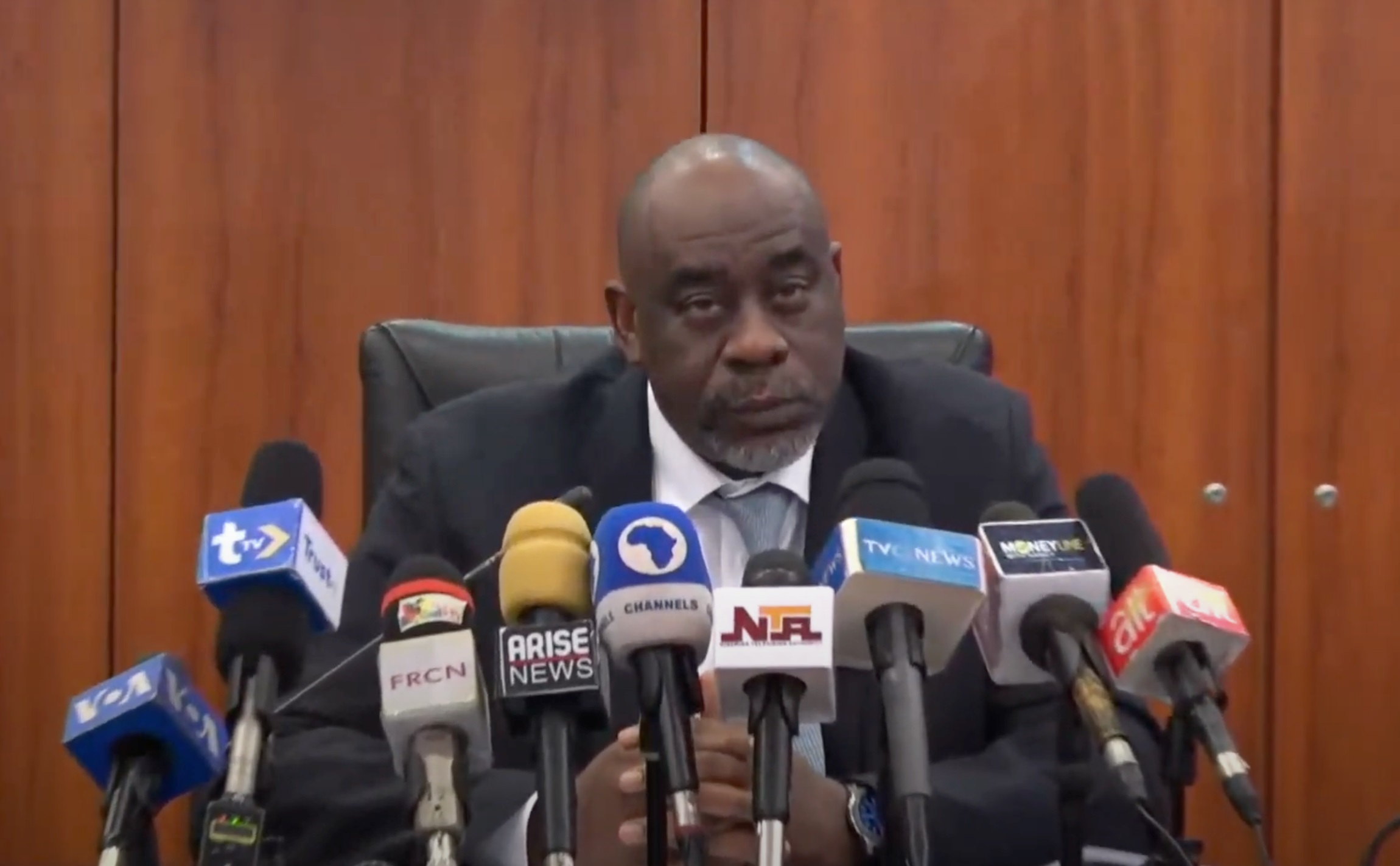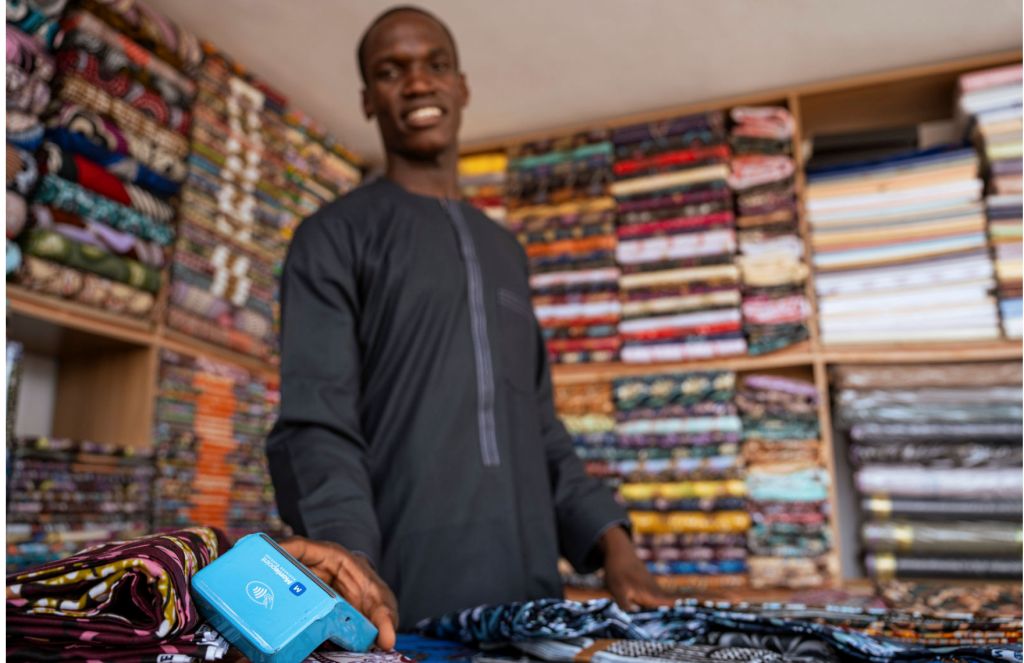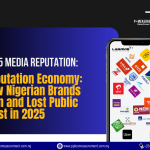Banking
CBN to Resume LDR Policy, Unfreezes Accounts of AbokiFX, Others

By Adedapo Adesanya
The Central Bank of Nigeria (CBN) ordered banks to vacate a Post-No-Debit (PND) restriction earlier imposed on the bank accounts of 440 individuals and companies.
The central bank has also informed commercial banks in the country that it would resume the enforcement of the Loan-to-Deposit Ratio (LDR) policy effective July 31, 2023.
A PND is one instrument through which the CBN gives powers to stop customers from operating their bank accounts with the permission of the courts.
The central bank conveyed the vacation of restriction in a circular dated July 25, 2023, which was signed by Mr A.M. Barau on behalf of the CBN Director, Banking Supervision Department, and addressed to all banks.
The correspondence read, “You are hereby directed to vacate the Post-No-Debit restriction placed on the accounts of the under-listed bank customers at our instance.”
The apex bank further mandated the banks to inform the concerned customers of the vacation accordingly.
Some of the affected accounts included Fortune-K Resources and Investment Nigeria Limited, Voomos Limited, BoxII Limited, OP Amber, KIIPay Limited, Blake Excellence Resort, and Vanu Nigeria Limited.
Others are Bakori Mega Services, Ashambrakh General Enterprise, Namuduka Ventures Limited, Crosslinks Capital and Investment Limited, IGP Global Synergy Limited, Davedan Mille Investment Limited and Urban Laundry, Advanced Multi-Links Services Limited, Spray Resources, Al-Ishaq Global Resources Limited, Himark Intertrades, Charblecom Concept Limited, Wudatage Global Resources, Whales Oil and Gas, Mosinox Oil and Gas and A.A. Gwad Ventures.
Those also listed included Treynor Soft Ventures, Fyrstrym Global Concepts Limited, Samarize Global Nigeria Limited, Zahraddeen Haruna Shahru, FirmCoin Resources and SIBT Acuracy, and CrossLinks Energy Limited, among others.
On the LDR policy, the apex bank said the move followed the January 7, 2020, directive, which required banks to maintain a minimum LDR of 65 per cent.
The CBN, in a letter addressed to the banks and signed by Mr Abu Shebe, on behalf of the CBN Director of Banking Supervision, further explained that the resumption of enforcement was in line with the objective of the policy and the need to moderate industry excess liquidity.
Consequently, the CBN warned that Deposit Money Banks (DMBs) with LDR below the minimum requirement as of the date and monthly thereafter would be liable to a Cash Reserve Requirement (CRR) surcharge of up to 50 per cent of the lending shortfall implied by the target LDR.
The bank added that the DMBs would be duly notified of their respective LDR position and basis of surcharges, if any.
On July on July 3, 2019, the central bank, in an effort to stimulate the economy, mandated banks to keep a minimum LDR – defined as a loan-to-funding ratio – of 60.0 per cent, which was later reviewed upward to 65.0 per cent on September 30, 2019, to encourage banks to increase consumer, mortgage, and corporate credits thereby stimulating aggregate demand, output growth, and employment.
The LDR is the total value of loan facilities issued divided by the aggregate value of deposits mobilized and has both liquidity and solvency implications in the short-medium and medium to long-term horizons.
According to the CBN, this underscores the need to measure the impact of LDR on banks’ liquidity to ensure the achievement of the mandate of the bank – to promote a sound financial system in the country – without compromising the health of domestic banks.
The justification for the LDR policy was also to encourage banks to enhance credit delivery to the real sector of the economy.
The apex bank, in the January 2020 letter to all banks, stated that it noticed a remarkable increase in the size of gross credit by the DMBs to customers.
Accordingly, the apex bank decided to retain the minimum 65 per cent LDR in the interim and directed the banks to maintain the level.
The CBN noted that the incentive, which assigned a weight of 150 per cent with respect to lending to SMEs, retail, mortgage, and consumer lending, will continue to apply, while failure to achieve the target shall continue to attract a levy of additional CRR of 50 per cent of the lending shortfall of the target LDR on or before March 30, 2020.
The banks were further advised to maintain strong risk management practices regarding their lending operations.
Banking
Moniepoint Processes N412trn Transactions, Disburses N1trn Loans in 2025

By Adedapo Adesanya
Nigerian financial services firm, Moniepoint Incorporated, processed N412 trillion in transaction value and disbursed more than N1 trillion in loans to small businesses in 2025, as the company continues to grow Nigeria’s expanding retail payments and credit structure.
The company said it handled more than 14 billion transactions during the year and now powers about 80 per cent of in-person payments nationwide, underscoring the increasing concentration of payment flows through a small number of fintech platforms.
Moniepoint also averaged 1.67 billion monthly transactions in 2025 and grew its card user base by 200 per cent, with its cards being used 1.7 million times daily.
The organisation also processed over 500,000 data renewals daily, while customers spent N90 million ($64,264) daily at gyms.

Moniepoint’s scale reflects a broader shift in Nigeria’s payments landscape, where point-of-sale terminals and digital transfers have become central to everyday commerce, from neighbourhood shops to open-air markets.
Founded in 2015, Moniepoint has evolved from a backend technology provider into Nigeria’s largest merchant acquirer, offering payments, banking, credit, foreign exchange and business management tools to more than 6 million active businesses.
The company said it expanded lending to small businesses that are often excluded from bank credit, disbursing more than N1 trillion in loans through its microfinance banking unit in the year under review.
“Our focus has been on building infrastructure that works for how businesses actually operate,” said Mr Tosin Eniolorunda, Moniepoint’s founder and chief executive, pointing to the prevalence of informal trade in Africa’s largest economy.
In 2025, Moniepoint became a unicorn after it raised more than $200 million in a Series C funding round backed by investors including Development Partners International, Google’s Africa Investment Fund, Visa, the International Finance Corporation and Verod Capital, providing capital to scale its payments and financial services operations.
Beyond acquiring, the company said its switching and processing subsidiary, TeamApt Ltd, secured licences from Mastercard and Visa to operate as a processor and acquirer, enabling it to handle international card payments and provide switching services to other businesses across Africa. Its web payments gateway, Monnify, processed N25 trillion in transactions during the year.
Recently, the Central Bank of Nigeria (CBN) upgraded Moniepoint’s microfinance bank to a national microfinance bank licence, allowing it to expand its footprint across the country and broaden the range of products that it can offer.

Banking
Standard Bank Helps Aradel Energy With $250m Financing Facility

By Aduragbemi Omiyale
A $250 million financing facility to support the acquisition of about 40 per cent equity in ND Western Limited from Petrolin Trading Limited has been secured by Aradel Energy Limited, a wholly owned subsidiary of Aradel Holdings Plc.
The funding package was facility for the energy firm by Standard Bank, which comprises Stanbic IBTC Capital Limited, Stanbic IBTC Bank Limited, and the Standard Bank of South Africa Limited.
The facility, Business Post gathered, was structured to support Aradel Energy’s strategic growth agenda, the refinancing of existing loan facilities, and the funding of increased production from the company’s existing asset base.
Aradel Energy is the operator of the Ogbele and Omerelu onshore marginal fields, as well as OPL 227 in shallow water terrain.
Prior to the transaction, Aradel Energy held a 41.67 per cent equity interest in ND Western, and following the completion of the acquisition, its shareholding in ND Western has increased to 81.67 per cent.
ND Western holds a 45 per cent participating interest in OML 34 and a 50 per cent equity interest in Renaissance Africa Energy Company Limited, the operator of the Renaissance Joint Venture and a 30 per cent owner of one of Nigeria’s largest and most strategic energy portfolios.
As a result of the transaction, Aradel Energy’s indirect equity interest in Renaissance has increased to 53.3 per cent, significantly strengthening the company’s upstream position and long-term value creation potential.
Standard Bank acted as Global Coordinator and Bookrunner, leading the structuring, execution, and funding of the facility, affirming its deep sectoral expertise and reinforces its position as a leading financier in Africa’s energy industry.
This transaction reinforces Standard Bank Group’s commitment to providing strategic capital to clients as they execute on their transformative growth objectives.
By delivering tailored financing solutions that enable sustainable value creation, the Bank remains a trusted partner to leading corporations across Africa’s evolving energy landscape.
“As Aradel Energy consolidates its position as one of Nigeria’s leading oil and gas companies, Stanbic IBTC Bank is proud to serve as a trusted long-term partner supporting the company’s growth ambitions,” the Executive Director for Corporate and Transaction Banking at Stanbic IBTC Bank, Mr Eric Fajemisin, stated.
Also commenting, the Regional Head of Energy and Infrastructure Finance for West Africa at Standard Bank, Mr Cody Aduloju, said, “The transaction illustrates Standard Bank’s ability to deliver large-scale, tailored funding solutions and further demonstrates our support to the fast-growing indigenous companies of Nigeria’s oil and gas sector.”
The chief executive of Aradel Holdings, Mr Adegbite Falade, said, “The acquisition bolsters Aradel Energy’s competitive positioning across Nigeria’s oil and gas value chain and supports our commitment to strategic growth, asset optimisation, and enduring value creation. We are pleased to have partnered with Standard Bank, who supported us and delivered a fully funded solution under very tight timelines.”
Banking
CBN Upgrades Operating Licences of OPay, Moniepoint, Others to National

By Modupe Gbadeyanka
The operating licences of major financial technology (fintech) platforms like OPay and Moniepoint, have been upgraded to national by the Central Bank of Nigeria (CBN).
Also upgraded by the banking sector regulator were PalmPay, Kuda Bank, and Paga after compliance with some regulatory requirements, allowing them to operate across Nigeria.
Speaking at annual conference of the Committee of Heads of Banks’ Operations in Lagos recently, the Director of the Other Financial Institutions Supervision Department of the CBN, Mr Yemi Solaja, said the licences were upwardly reviewed after the financial institutions met some requirements, including the Know-Your-Customer (KYC) policy.
“Institutions like Moniepoint MFB, Opay, Kuda Bank, and others have now been upgraded. In practice, their operations are already nationwide,” he said at the event.
The upgrade also reinforces financial inclusion, as fintechs and agent networks continue to play a pivotal role in providing access to banking and payments services, especially in rural and underserved areas.
The central bank executive stressed the importance of physical presence for customer support.
According to him, “Most of their customers operate in the informal sector. They need a clear point of contact if any issues arise,” to strengthen internal controls, and enhance customer service, particularly around KYC and anti-money laundering (AML) processes.
-

 Feature/OPED6 years ago
Feature/OPED6 years agoDavos was Different this year
-
Travel/Tourism9 years ago
Lagos Seals Western Lodge Hotel In Ikorodu
-

 Showbiz3 years ago
Showbiz3 years agoEstranged Lover Releases Videos of Empress Njamah Bathing
-

 Banking8 years ago
Banking8 years agoSort Codes of GTBank Branches in Nigeria
-

 Economy3 years ago
Economy3 years agoSubsidy Removal: CNG at N130 Per Litre Cheaper Than Petrol—IPMAN
-

 Banking3 years ago
Banking3 years agoSort Codes of UBA Branches in Nigeria
-

 Banking3 years ago
Banking3 years agoFirst Bank Announces Planned Downtime
-

 Sports3 years ago
Sports3 years agoHighest Paid Nigerian Footballer – How Much Do Nigerian Footballers Earn












